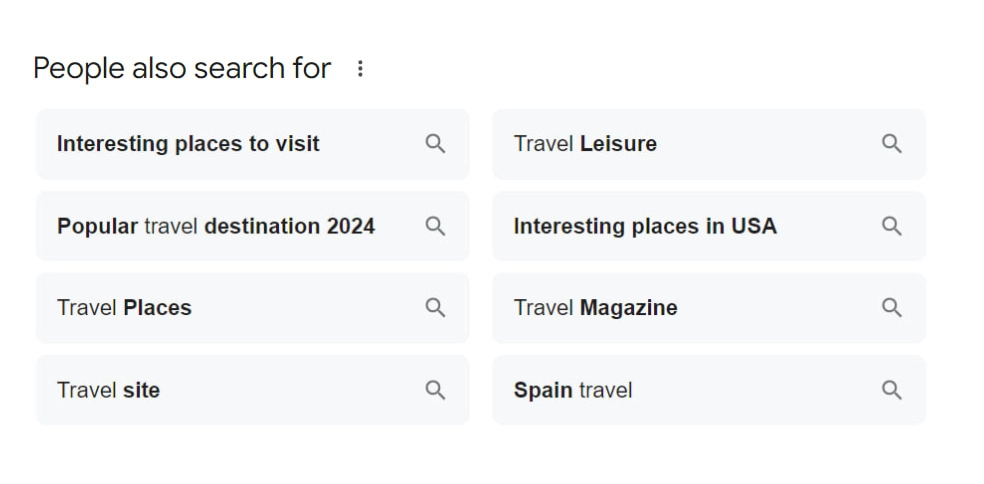In the constantly evolving landscape of Search Engine Optimization (SEO), semantic keywords have emerged as vital players. But what are they, and how can you leverage them to enhance your website’s visibility and relevance? Let’s delve deeper into the importance of semantic keywords in SEO and explore practical strategies to employ them effectively.
What Are Semantic Keywords?
Semantic keywords go beyond synonyms or closely related terms; they encompass a broader context that frames your primary keyword within a specific topic or question.
For example, if your primary keyword is “vegan recipes” semantically related keywords could include:
- plant-based meals
- dairy-free cooking
- simple vegan meal prep

Each of these terms expands the topic, offering search engines more clues about the content’s focus and improving your chances of ranking higher.
Why Is the Use of Semantic Keywords Important?
The importance of semantic keywords in SEO can’t be overstated. Here are a few key reasons:
- Enhanced Understanding: Semantic keywords enable search engines to better understand the context and subtleties of your content. For example, a website that uses the primary keyword “best smartphones” might include semantic keywords like “latest mobile technology,” “top-rated phone features,” and “smartphone buying guide.” This thorough strategy enables search engines to grasp the overall context of the page, which can result in higher rankings.
- Increased Relevance: By incorporating a diverse set of semantic keywords, you can attract a wider and more varied audience. For instance, a fitness blog focusing on “home workouts” might incorporate terms like “bodyweight exercises,” “home gym routines,” and “personal training at home.” This strategy helps attract visitors who search for variations of the main topic.
- Better User Experience: Richer content leads to a better experience for readers. For example, an e-commerce site selling “organic skincare products” could use related terms like “natural beauty products,” “clean beauty products,” and “organic face creams.” This approach not only enhances the user experience but also boosts engagement and decreases bounce rates.
How to Find and Use Semantic Keywords
Now that we understand the what and why, let’s tackle the how. Finding and incorporating semantic keywords into your content strategy involves several steps:
1. Start with Keyword Research
Utilize tools like Google Keyword Planner, SEMrush, or Ahrefs to discover your primary keyword and related terms. For example, if you’re focusing on “digital marketing,” tools might reveal related keywords such as “content marketing strategy” and “SEO best practices.”
2. Analyze Related Searches
Scroll to the bottom of Google’s search results for your primary keyword. The “Related searches” section is a goldmine for finding semantic keywords. For example, searching for “best travel destinations“ might reveal suggestions like “interesting places to visit“ or “interesting places in USA“.

3. Check Out Competitors
Explore what keywords your competitors are targeting. For example, if you run a blog about “sustainable living,” examining a competitor’s site might uncover keywords like “eco-friendly tips” and “green lifestyle habits” that you can incorporate.
4. Incorporate Them Naturally
Once you have your list of semantic keywords, weave them into your content seamlessly. For example, if you’re writing about “healthy eating,” integrate phrases like “nutritious meal plans” and “balanced diet recipes” naturally into your text, headings, and meta descriptions.
5. Keep User Intent in Focus
Always align your semantic keywords with user intent. If users are searching for “how to build a website,” your content should include answers and tips on website creation, using semantic keywords like “website design tips” and “building a site from scratch.”
6. Semantic Richness in Metadata
Enhance your meta titles and descriptions with semantic keywords. For example, a meta description for a page about “organic gardening” could include terms like “eco-friendly gardening practices” and “sustainable planting techniques” to attract more clicks.
7. Continuous Evolution
The landscape of language and search is always evolving, and so should your use of semantic keywords. For example, if a new trend in “remote work” emerges, update your content to include related terms like “virtual team management” and “home office setup.”
How Semantic Keywords Transformed a Business's SEO
Consider the case of a small e-commerce business specializing in handmade jewelry. Initially, the site focused solely on keywords like “handmade jewelry” and “unique jewelry pieces.” However, after incorporating a range of semantic keywords such as “artisan-crafted rings,” “custom-made necklaces,” and “bespoke jewelry designs,” their search engine visibility improved significantly.
Within three months, the site saw a 40% increase in organic traffic and a 25% boost in conversion rates. This shift was due to the broader context provided by the semantic keywords, which attracted a more targeted audience and improved user engagement.
In the digital age, the line between writing for search engines and writing for people is blurring. The effective use of semantic keywords stands at the heart of this convergence, merging SEO with engaging storytelling.
We’d love to hear your thoughts! Have you had experiences with semantic keywords that transformed your SEO strategy? You’re welcome to share your experiences or ask any questions in the comments below. If you need help with semantic keyword research or have any SEO-related queries, don’t hesitate to contact an SEO expert.
Remember, the ultimate goal is to serve your readers with valuable, informative content that answers their questions and enriches their understanding. Semantic keywords are tools to achieve this end, ensuring your content does more than just rank well—it connects, educates, and inspires.




